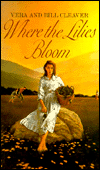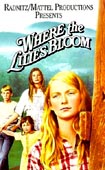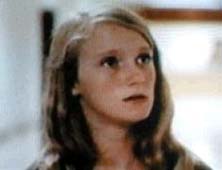
Solo
Rounder Records (PHILO 1102) 1985
Re-issued on CD in 1986
Produced by John Nagy

|
Mimi Fariņa: Solo Rounder Records (PHILO 1102) 1985 Re-issued on CD in 1986 Produced by John Nagy
|
Solo was Mimi's first solo album, and, aside from a few guest appearances
on albums by Joan and various friends, it was her only major release since Take
Heart in 1971.
Mimi had compiled much of this material in the early seventies, after her
split with Tom Jans in 1972. Three of the songs on
The album is a strong collection of songs thankfully out of touch with
the trends of the eighties. Featuring Irish pipes, bodhran, banjo and tenor
banjo, violin, viola, mandolin, and mandocello, this album has a much more
folky, earthy sound than one might expect from the eighties. As with Take Heart, many of the
songs are melancholy, but overall the album has a warmth and a quiet strength that
grow on you after several listenings.
The album featured Banana (Lowell Levinger), the multi-instrumentalist
of the Youngbloods who accompanied Mimi in concert for many years. He co-wrote
the song "Big Party" and co-arranged several others.
In spite of its strengths, however, one feels that the album could have been better,
considering its years in the making. Their should have been more of Mimi's own songs
(she had quite a backlog of unreleased material), and more prominent guitar playing.
She doesn't quite live up to her reputation as a guitar genius on the album, and
the lack of an intrumental son--in the tradition of the brilliant Mimi & Tom guitar
duet "After the Sugar Harvest" and the numerous Dick & Mimi instrumentals--is one of
the chief disappointments of this album. Also, the electric bass is too prominent
and punchy; an acoustic bass would have been much more suitable. It's impossible to
tell whether these faults were the results of Mimi's decisions or the producer's.
The album was discussed briefly in The San Francisco
Chronicle, in an article about Mimi and Joan, by Ben Fong-Torres:
Credits:
"Baez, asked about the album, at first read from a prepared statement, calling her sister
'a superlative musician' who has 'survived the changing musical times with great
integrity.'
She then adds, 'There were parts of it that she couldn't rise above, but some of them,
she just took off, and I thought they were wonderful. I think she does best when she's
singing in a duet or trio; I think she's more sure...' On her own, Farina has produced a
lovely album, a celebration of pure and simple folk
singing, one in which her soprano can't help but remind of Baez' but which also soars
to its own heights."
A Note on "Mary Call"
The song "Mary Call" was originally written for a movie, Where the Lilies
Bloom (1974), based on a novel by Vera and Bill Cleaver, about a family living
in the Appalaichan Mountains. The main character, Mary Call Luther,
has to raise her brother and sister after their father dies. Mimi wrote in the
liner notes, "At the screening of the movie I was
so taken by a young actress who
portrayed one of the lead characters that I wrote this song for her. Her
natural talent was untrained but she carried the movie. I prayed that Hollywood
would not interest her. They didn't use my song and I can't help but feel that
that's how it was supposed to be." They reportedly felt that Mimi's lyrics gave
away too much of the plot, and they chose instead two
songs by Barbara Mauritz--though there is a scene at the end that really screams
for Mimi's song. The soundtrack is by Earl Scruggs. Despite the
Disneyish, kiddie-movie appearance of the video cover, Where the Lilies Bloom
is a very good film,
worth renting for the Scruggs soundtrack alone. If you liked Songcatcher,
you'll like this one.



Vera and Bill Cleaver
by William A. Graham
Mary Call Luther
The Songs on Solo:
1. Best of Friends (Mimi Fariņa) 2:50
2. Big Party (lyrics: Mimi Fariņa; music: Lowell Levinger) 2:45
3. Mary Call (Mimi Fariņa) 3:22
4. Walk Me 'Round Your Garden (Dick Pinney) 3:38
5. If My Eyes Were Blind (David Olney) 4:29
6. Old Woman (Mimi Fariņa) 3:52
7. Deep Feelings (Mimi Fariņa) 3:54
8. How Can We Hang On To A Dream (Tim Hardin) 2:55
9. Disappointed Again (Mimi Fariņa) 2:19
10. Quiet Joys of Brotherhood (Richard Fariņa) 4:32
Mimi Fariņa: guitar, vocals
Chris Able: Irish pipes, bodhran
Banana: vocals, guitar, banjo, DX7 synthesizer
Robin Batteau: violin
Mark Egan: bass
Jeff Lass: piano
Mick Moloney: tenor banjo, mandolin
John Nagy: guitar, mandocello
Christopher Voelker: viola
Produced, engineered and mixed by John Nagy
Photography by Russ Kendall
Design by Susan Marsh